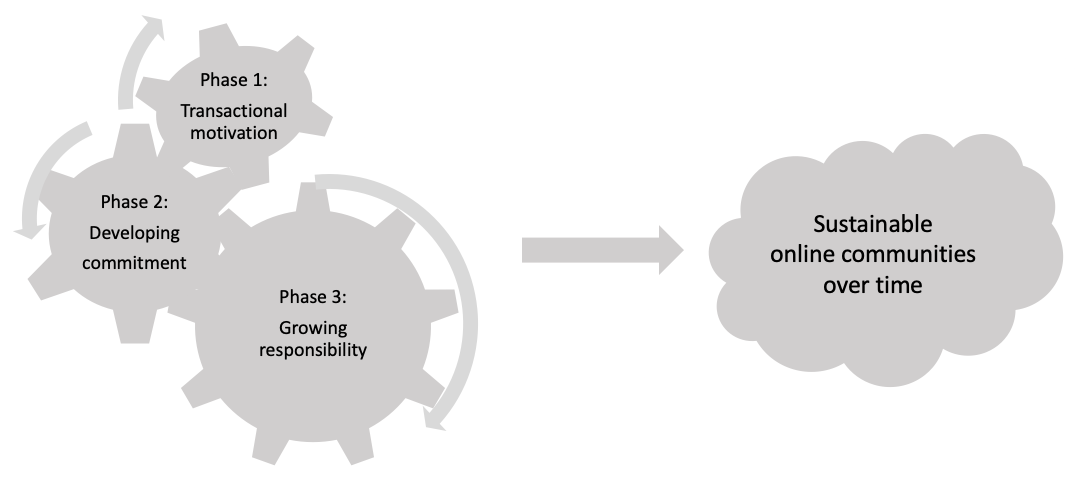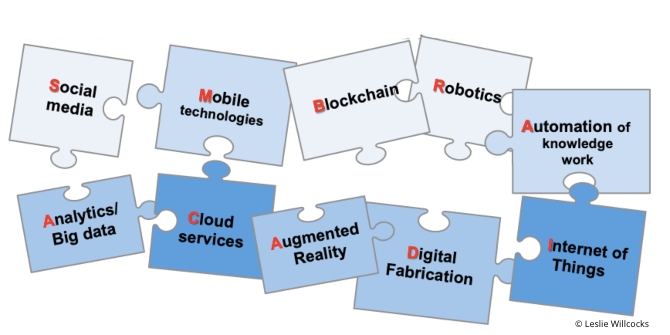By Petros Chamakiotis, Niki Panteli and Dimitra Petrakaki
We live in an era of social media and online communities where much of what used to happen face to face has moved online. Even more so in the context of the COVID-19 crisis. How relevant are existing management theories within this new context? Can we simply mimic traditional management practices or do we need to modify them (or even discard them)?
Online communities constitute one such example of an online space where individuals from around the world get together to exchange knowledge and experiences around an issue of interest. It is widely believed that the success of an online community depends on its membership growth. However, findings from our recent study lead to new insights challenging existing knowledge and are likely to contribute to a change in how organisations do things on the ground. We reveal that other factors matter much more than the community’s member-base!
Why care about commitment in online communities now?
COVID-19 has accelerated the speed with which organisations and societies are transitioning online. Consequently, practitioners are looking for answers to how they can operate online effectively. Our study provides some answers around new paths organisations can take to work better online. In particular, we unpack a hidden mechanism—growing commitment—that, as we argue, can help to create successful and sustainable online communities.
We studied MedicineAfrica, a digital platform that hosts an online community of UK-based healthcare professionals who voluntarily teach medical students from post-war countries in Africa and the Middle East online. We use MedicineAfrica, a unique and paradigmatic case of social value creation, for those involved and beyond, to illustrate how an online community can grow without necessarily needing to constantly attract new members.
We found that although the technical capabilities of a digital platform are necessary for it to operate, it is the growing commitment of its users that get united under common community objectives over time that activates the process of social value creation. Three types of social value were identified in our study: cognitive (about the ‘know-how’), professional (related to new opportunities) and epistemic (about the ‘know-what’). Our study also looked into the process through which social value is created. Challenging mainstream management thinking that sees the size of online communities as an indicator of their success, our study reveals how members’ growing commitment can drive significant societal changes, irrespective of the size of the community. Growing commitment was found to be one of three mechanisms (along with connective capacity and collective practices; see Figure 1 in our published study). Although the other mechanisms are known, the emergence of growing commitment as a factor contributing to an online community’s aims offers fresh insights that online community founders and managers can focus on to boost online community sustainability and success.
Figure 1. Three phases of growing commitment

Our study hints at three phases of growing commitment (also delineated visually in an online brochure drawing on preliminary findings from this study, and in Figure 1 above):
Phase 1: Transactional motivation related to the provision of non-financial incentives that can attract healthcare professionals to join a platform. The platform we studied offered healthcare professionals in the UK a variety of professional development opportunities, including the chance to get teaching experience by delivering online tutorials to other medical students (and practitioners) in post-war countries with fragile healthcare systems. Most participants saw that as a unique opportunity through which they could network with like-minded individuals from around the world, whilst gaining exposure to global health cases that they would not otherwise be able to know. Many commented that this was ‘good for the CV’, thus clearly seeing added professional value for themselves. Initial motivation was therefore mainly transactional, recognising the immediate benefits for those putting in the time and effort to teach.
Phase 2: Developing commitment emerged when users’ personal values aligned with the values that underpin the platform (such as philanthropic value). Here, we observed a felt need by most of our participants to make good use of their time by offering skills and knowledge to people and countries that lack them, or, in the participants’ own words, in order to make a contribution by ‘deploy[ing] [one’s] skillset to good effect’. With time, therefore, we saw the first signs of a unique form of digital activism being developed, whereby teaching on the platform was perceived as a philanthropic, moral and reciprocal activity, thereby offering a sense of fulfilment and reward for undertaking activities that were seen as meaningful. This form of digital activism was found to further enhance the participants’ commitment to the platform and dedication to continuous contribution.
Phase 3: Growing responsibility was the result of users’ personal and professional development as a result of the opportunities provided by the platform. As the online community hosted by MedicineAfrica became more popular, members were presented with additional opportunities to undertake a range of different roles. These new roles involved higher levels of responsibility and leadership; for example, a clinical tutor would become a programme lead or a course director. Further to simply delivering a course online, added responsibilities—such as programme organisation—were seen as factors that added to the participants’ commitment to the platform over time. In particular, undertaking new roles and initiatives within the online community promoted a culture of ‘growing together’ with it.
How to build successful online communities with commitment
Managers of online communities and digital platforms who wish to build successful online communities should not therefore rely solely on meeting members’ transactional needs but should aim to, first, help their members identify with the community, and second, incite them to ‘grow with it’. To achieve this, they need to ensure that their members perceive the community as a meaningful and potentially fulfilling environment, worthy of their time and effort. Therefore, providing opportunities for active participation as well as long-term involvement and growth over time is essential. Building online communities by focusing on their members’ commitment means growing commitment is conditioned on the possibility for personal and professional development, progress and growth through engagement with varied platform roles, but most importantly it is dependent on a sense of meaningfulness and fulfilment on the basis of a societal cause; in the case of MedicineAfrica that cause was related to producing social value for post-war countries with poor healthcare education and systems. An online community does not always have to be big; even ‘smaller’ ones can also be successful and sustainable!
♣♣♣
Notes:
- This blog post is based on Social value creation through digital activism in an online health community, Information Systems Journal, Volume 31, Issue1, January 2021
- The post expresses the views of its author(s), not the position of LSE Business Review or the London School of Economics.
- Featured image by Alexandra_Koch, under a Pixabay licence
- When you leave a comment, you’re agreeing to our Comment Policy





